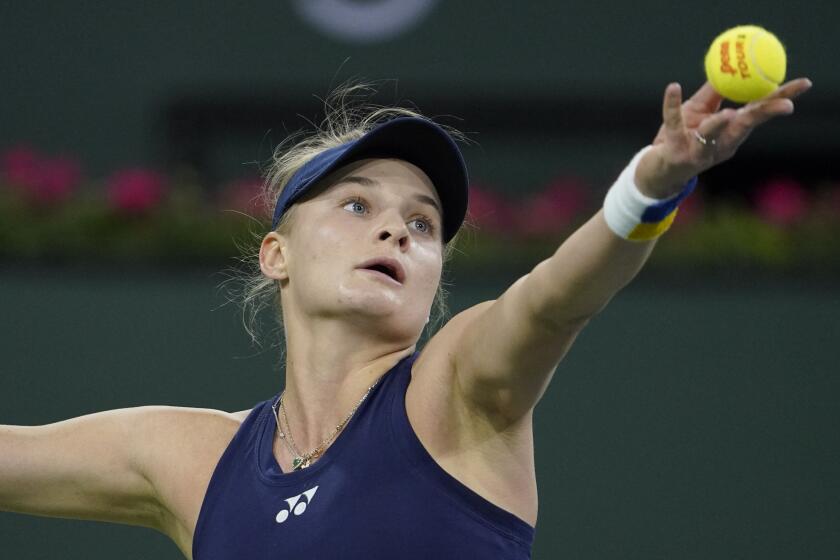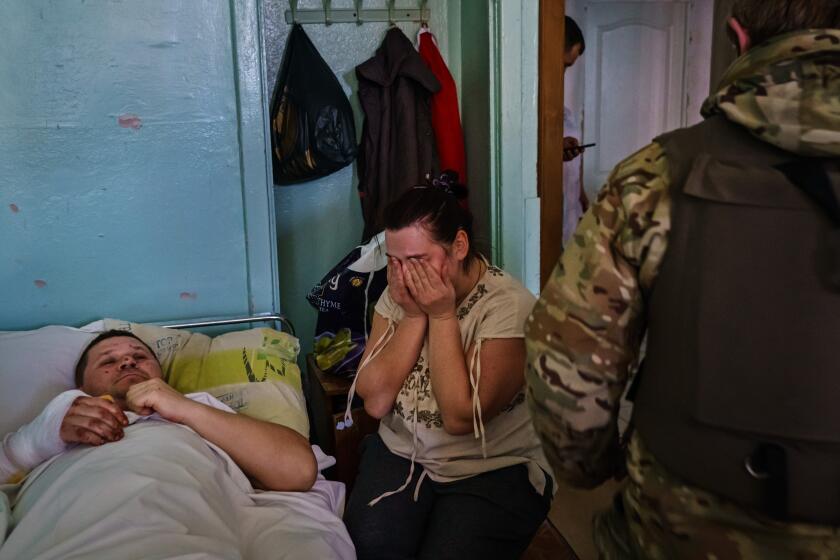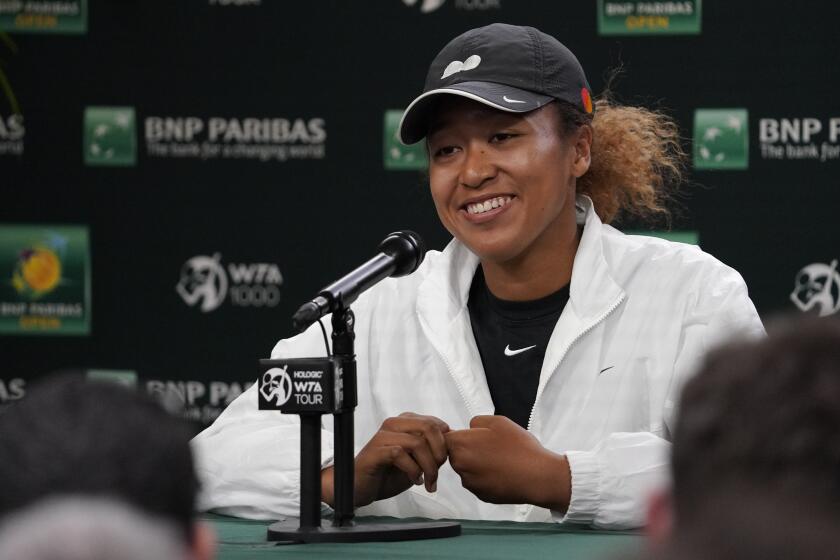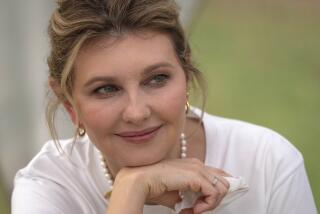Column: Dayana Yastremska recounts harrowing experience of living in a Ukrainian war zone
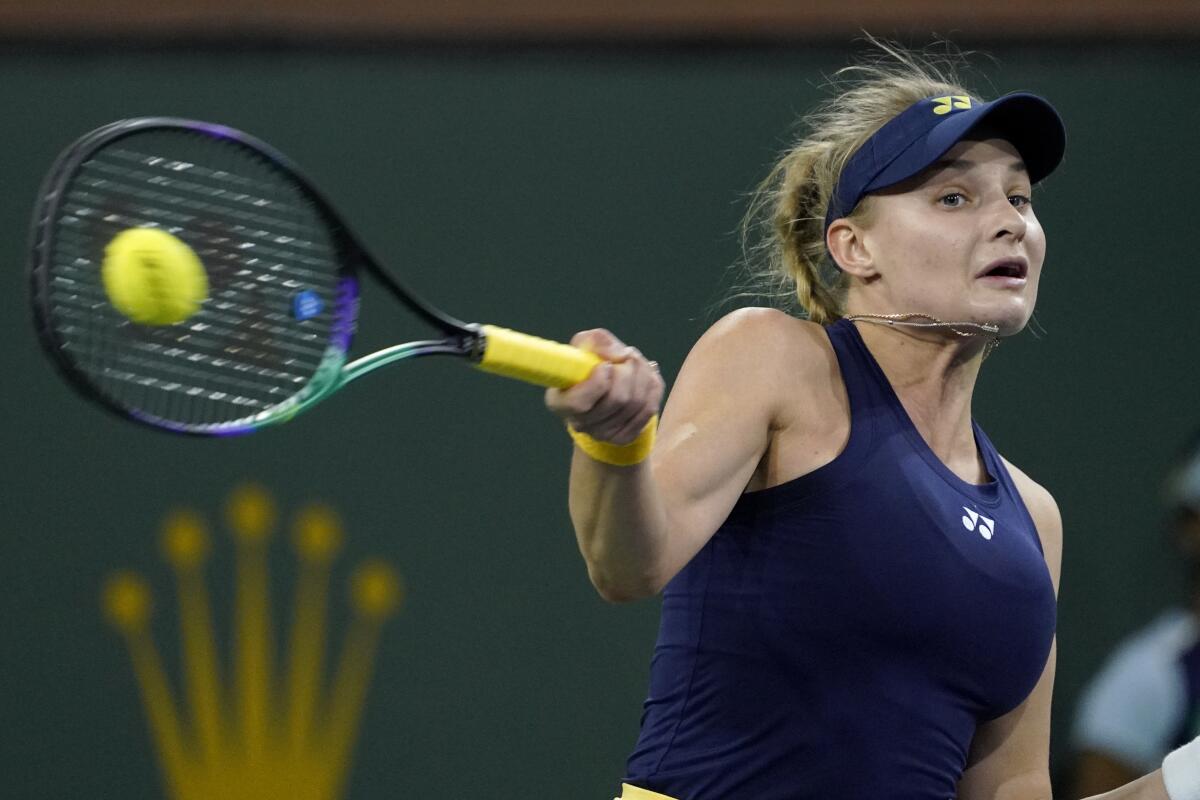
- Share via
Dayana Yastremska shouldn’t know so much about the terrible cost of warfare.
The 21-year-old Ukrainian should be able to focus on improving her tennis game, on polishing an aggressive style that has allowed her to rank as high as 21st in the world. She shouldn’t have to be familiar with what to do when civil authorities issue take-cover warnings. She shouldn’t have to understand so well why living near the Black Sea makes her hometown of Odessa a tempting target for the Russian invaders who have attacked her homeland the last two weeks.
Yastremska knows all of these awful things, and more. She lived them before her parents, Oleksander and Marina, arranged for her and 15-year-old sister Ivanna to leave the country to ensure their safety. The sisters went first to Lyon, France, where adrenaline and emotion carried Dayana to the finals of a tournament last week, and then to California, where anxiety and jet lag caught up to Dayana in a loss to Caroline Garcia in the first round of the BNP Paribas Open.
Russia’s horrifying invasion of Ukraine was on the minds of many players as competition began Wednesday at BNP Paribas in Indian Wells.
“I felt like I was very empty inside,” she said in an interview with The Times on Thursday. “I think everything that’s going on, it’s really affecting me mentally and physically. I’m very sad I lost because it’s a really good tournament and I got a good opportunity with the wild card but I couldn’t realize what I wanted to do on the court. But it’s OK. We still have doubles. We’re going to enjoy it.”
Her parents are still in Ukraine. So are her thoughts about the horrors she saw before she left and the danger they’re still experiencing.
“I remember we were walking close by to our apartments and there was a bomb close to us. Not so far and not so close but you could hear it like crazy,” she said. “We got so scared and we ran back to our apartments and went to the underground because there was the sign that we must be careful because there’s going to be shooting from the sky.
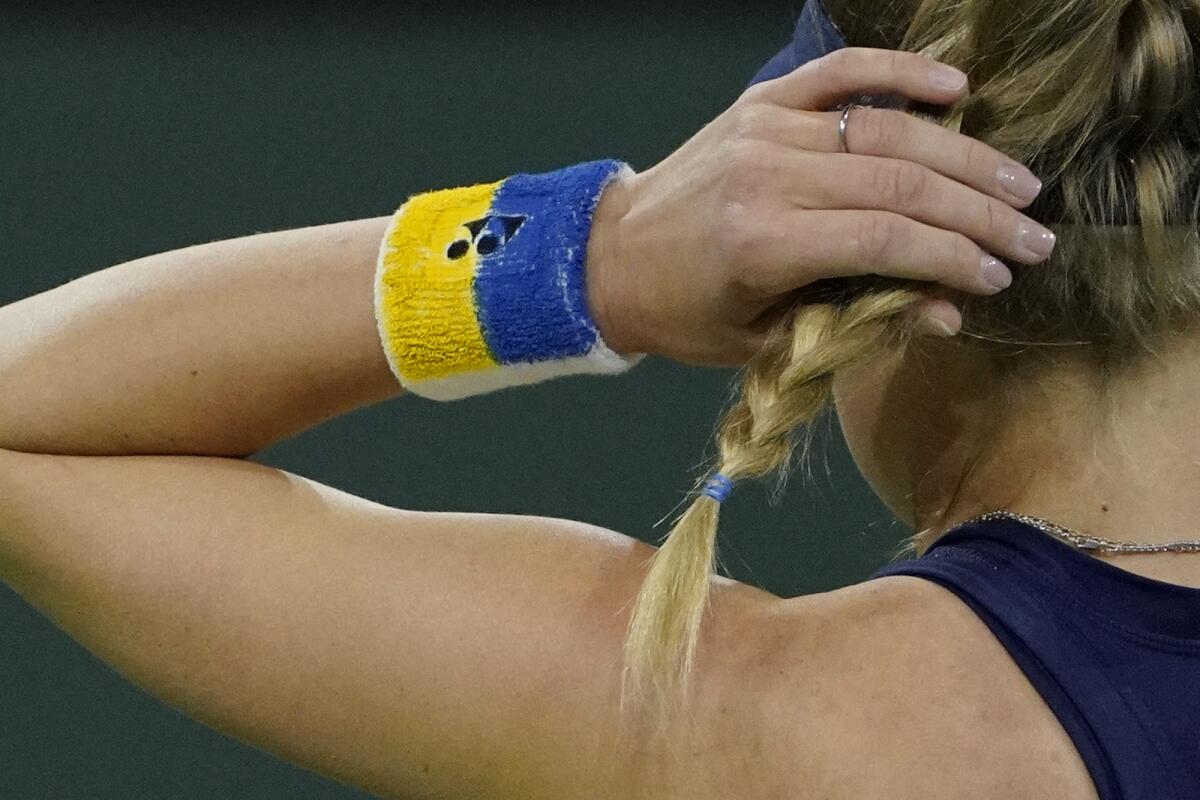
“If the war is going to stop, for sure I would like to be back to Ukraine. I would like to be back to my city and just see my family. But if it’s not going to stop then I don’t know what we’re going to do.”
— Dayana Yastremska
“In a couple cities they are shooting even to the schools, hospitals, you know, where a lot of small children are. They don’t really care where they shoot. So it’s pretty dangerous.”
Her home has not been damaged but she’s fearful it could be hit at any time. “It’s in a place close to the sea,” she said. “For now, everything there is still OK but still it’s pretty scary because it’s near the sea and usually when they come, they come from the sea.
“So when my parents have the sign that it’s going to start shooting or bombing with the rockets, they usually go down [to a subterranean shelter] because we live on floor 12, so it’s pretty scary. As they shoot at every houses, they shoot to normal houses where people are living you don’t know what to expect.”
Yastremska, who wore a ribbon in the blue and yellow colors of the Ukraine flag pinned to her jacket, said she has been able to speak to her parents almost daily but not for long. “They don’t have an internet [connection] all the time because they’re usually spending time in the underground, or just sometimes because the internet is not so well,” she said. “So it’s pretty tough to talk. But for now, the situation is the same. Nothing changed really.
Officials assess grim toll at Mariupol maternity hospital after Russian and Ukrainian officials fail to make progress after meeting in Turkey.
“It’s tough to be without them because I used to usually travel with my father or with my mother, but I’m happy at least I have my sister here so we are together. It was very hard to leave but I hope everything is going to finish soon.”
Her original plans called for her to play here and then at the Miami Open, where she hopes to get into the qualifying round. After that, she had intended to play in clay-court tournaments in Bogota, Colombia; and Istanbul, Turkey. Those plans are less certain now as she watches her compatriots battle for their freedom.
She has no home base at the moment and so plans to go from tournament to tournament until the situation in Ukraine improves. Tennis players are accustomed to going from city to city to compete, but it’s different when you know that you can’t go home, can’t see your family, can’t refresh your soul by spending time in the places you know best with the people who know and love you best.
“Odessa has always been my home. Even when I would go back for just a couple days I knew I would see my family. I would recover there very good because I’m going there,” she said. “But I’m not really able to be back and I don’t know how everything is going to finish.”
Naomi Osaka enters the BNP Paribas Open with confidence she can enjoy tennis again after sharing her mental health struggles last year.
Even if she wanted to return, she said, her father wouldn’t allow her to put herself in danger again.
“Before I left Ukraine he took the decision that I have to leave with my sister and he said, ‘You never know how the world is going to end up.’ He said we have to build our future and we have to go for our goals,” she said.
“If the war is going to stop, for sure I would like to be back to Ukraine. I would like to be back to my city and just see my family. But if it’s not going to stop then I don’t know what we’re going to do. We can’t make any plans because we don’t know how it’s going to end.”
She shouldn’t have to know that. No one should.
More to Read
Go beyond the scoreboard
Get the latest on L.A.'s teams in the daily Sports Report newsletter.
You may occasionally receive promotional content from the Los Angeles Times.

